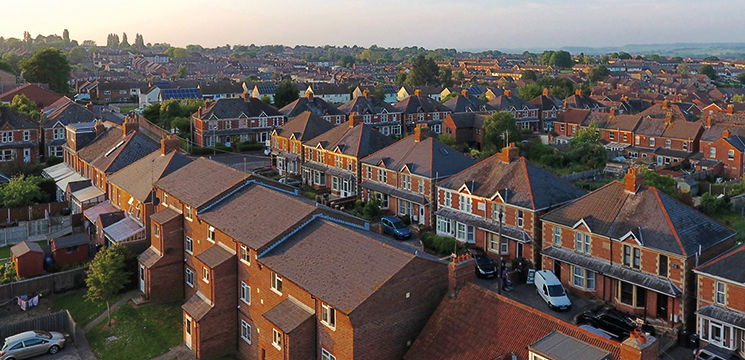The construction and property sectors, in particular, are struggling to cope with a shortage of building materials, coupled with a sharp increase in demand following the pandemic. On top of that, supply chain issues, a looming energy crisis, a skilled labour shortage, and Brexit are taking their toll on businesses. This slew of harsh commercial conditions, in turn, is affecting construction, repair and rebuild costs and insurance claims.
What indexation means, and how it affects your insurance
Indexation is a mechanism that insurers use to make certain that your rebuilding sums insured remain as accurate as possible. Inflation can lead to underinsurance because it can cause the rebuild costs of a property to fluctuate. Unless your sums insured keep pace, you won't be adequately insured when you need to make a claim. Indexation allows your insurer to adjust your sums insured in line with changing rebuilding costs. This index-linking mechanism also means that your premium may rise as a result of inflation.
Why inflation and rising construction costs matter for your sums insured
Given current inflationary pressures (The Bank of England predicts that inflation will rise by 7% this spring), it follows that if the cost of construction materials and labour increases, rebuild costs will also inevitably rise. Moreover, if your sums insured aren't enough to cover the total rebuild costs of your property (noting that this refers to the cost of rebuilding the property, not its market value), you will find yourself seriously out of pocket in the event of a claim.
Additionally, while your insurer can use index-linking to update your sums insured year on year, a rebuilding cost assessment (RCA) should be carried out at least every three to five years to avoid an insurance shortfall. An RCA will help your insurer calculate how much it would cost to reinstate your property in the event of a total loss.
What is the Condition of Average clause?
The frequency of revaluations is not stated in advice provided by the Royal Institute of Chartered Surveyors (RICS). However, it is likely that your insurance policy will include a Condition of Average clause.
The Condition of Average is applied when the insurer deems the rebuild cost of a property to be greater than the amount declared and the sums insured. In this instance, the insurer will calculate the shortfall and reduce the claim in proportion to the underinsurance. For example, let’s assume a building is insured for £1m, but the actual value is £2m. Then the amount the insurer will pay under a claim is limited to 50%, even for smaller losses well below the policy limits
Many policies have a waiver of the Condition of Average if the property has been professionally valued in the last three years. So, it’s clearly in the property owner’s interest to ensure a valuation is performed at regular intervals.
Preventing underinsurance is critical
If you are underinsured, your insurer may decide to reduce the amount they pay on an insurance claim. If the shortfall is substantial, they may conclude that they wouldn't have insured you in the first place had they been aware of the correct reinstatement/rebuild sums insured and reject your claim entirely.
Rebuild Cost Assessment Ltd estimates that almost 80% of property owners are at risk from an insurance shortfall. Therefore, conducting an RCA on a regular basis can help you avoid the potentially devastating consequences of underinsurance.
Check your cover
Clear is on hand to help you review your policies and ensure that you are properly prepared in the event of a claim. If you'd like to find out more, speak to a Clear representative.







